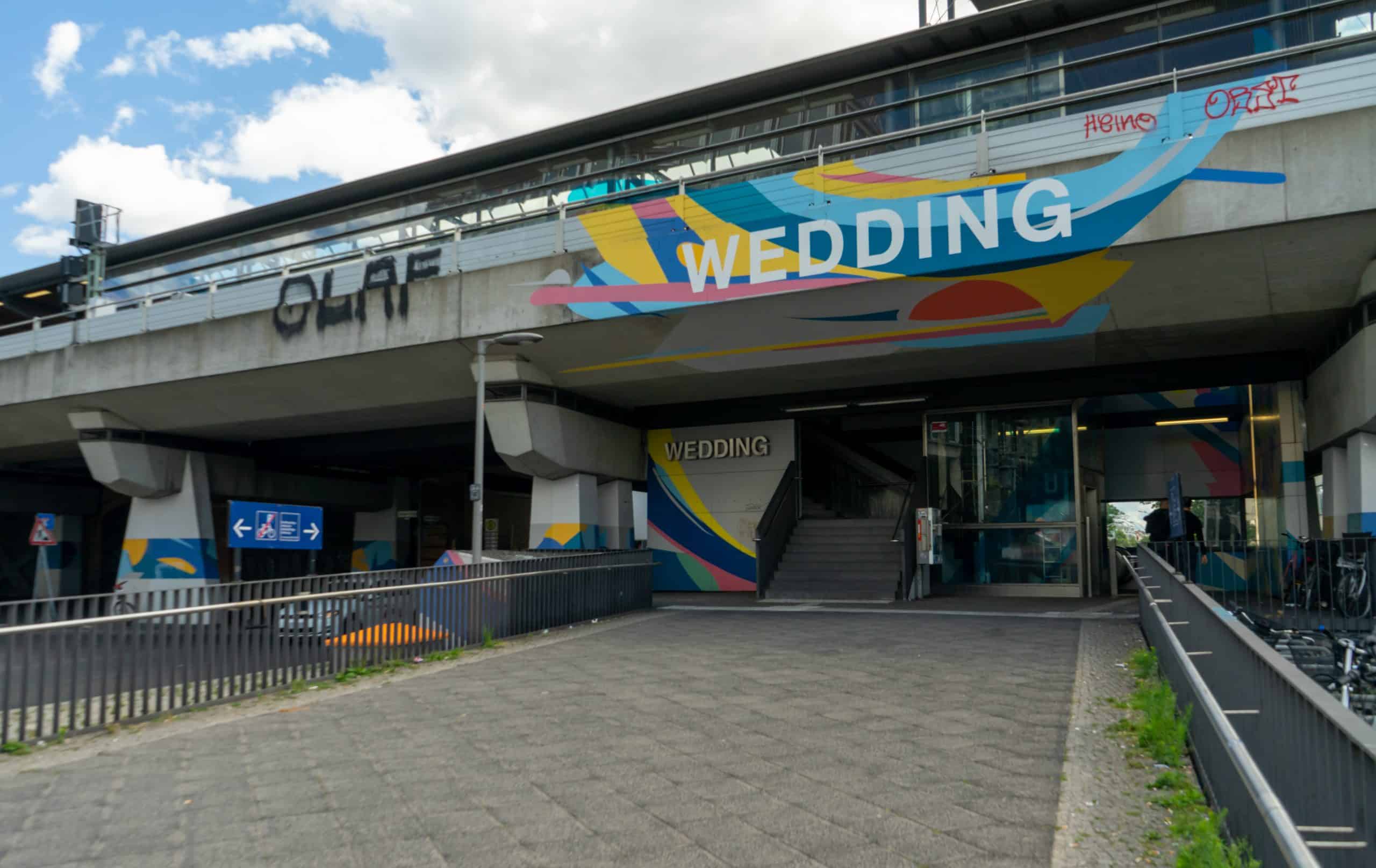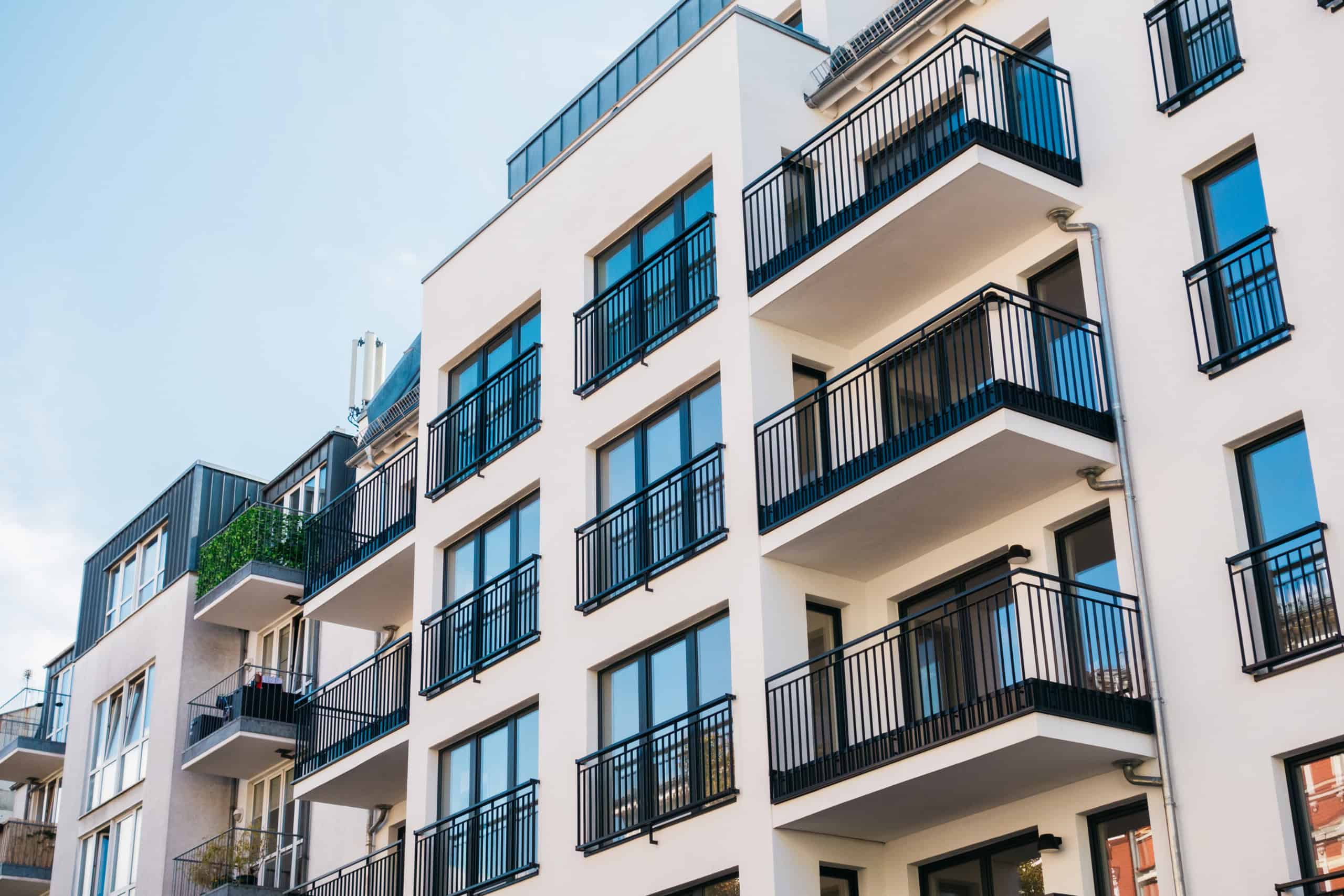More and more people are thinking about their private pension provision in view of the tight pension funds. But are savings, ETFs, shares or real estate the best option? In any case, home ownership has many advantages. If you don’t make a financial profit from it, you at least secure your accommodation and don’t have to pay rent later on.
There are of course many other advantages, which we will discuss below. Particularly in the major metropolitan areas, the potential for value appreciation is enormous given the high demand. On the other hand, apartments are not just investments, they are essential to life. They are therefore subject to certain regulations, which can sometimes have a negative impact on the sales price and rental income.
Advantages of home ownership
A condominium or an entire house offers you financial security in many respects. In the best case scenario, you will no longer have to pay rent when you retire and can live in your own home with peace of mind. Of course, it should not be forgotten that loan installments, property tax, ancillary costs and house fees will still be incurred. Alternatively, the potential rental income has high growth potential. This allows you to generate a passive income in old age. The advantages at a glance:
- Stable retirement provision: you have a secure home in old age and do not have to depend on other people, especially landlords.
- Good prospects for value appreciation: Demand for apartments in major cities has been high for many years, which is why further price growth can be expected over the coming decades.
- passive income through rental income: To finance the maintenance of your home, you can take tenants into your home and generate passive income in this way.
- tax advantages: All expenses incurred for the maintenance and increase in value of the residential property can be deducted from tax.
- Relatively stable costs: While you may have to expect rising costs for rent, mortgage rates usually remain stable.
- Building up equity: Once the mortgage has been paid off, you own equity in the form of a property and, in the best case, benefit from an increase in value.
Financial security through home ownership
One of the most important advantages of home ownership is that you can build up financial security and a sensible pension plan with such an investment. You may be able to retire at the age of 60 and enjoy your retirement in your own home. Renting out your home also provides more protection against poverty in old age. The passive income is added to your state pension and thus increases your income in retirement.

Personal advantages
With a home of your own, you can enjoy a better quality of life in old age and sit back and relax without any worries. As you have a secure retreat with your own property and don’t have to pay rent, your general stress level also decreases. This is particularly important for staying mentally and physically healthy in the long term.
The high level of independence that home ownership gives you also gives you maximum flexibility in old age. Do you fancy a trip around the world for a year or two? Then simply rent out your condominium, live off the rental income and use it to finance your trip around the world.
Selecting the right object
To ensure that you can really benefit from your home later on, you must of course choose the right property. This depends very much on factors such as the building fabric, the location and the general potential for appreciation in the selected city.
Much also depends on the sheer potential of the location. Attractive employers in the vicinity and economic development can ensure more people move in. This increases demand and you as the owner can demand higher rents. However, you should pay attention to possible rent caps and other political regulations such as the milieu protection in Berlin. Such legal frameworks can dampen the increase in value.
Location and appreciation potential
Nowadays, the location of residential property is one of the most important factors for value appreciation. Popular trendy districts are experiencing a hype throughout Germany and Europe. From Prenzlauer Berg in Berlin to Munich’s Schwabing district, there has been a huge increase in demand, especially from international buyers.
It is important not to rush straight into properties that are already expensive. It is often better to invest in areas where residential property prices still have upward potential. You can buy comparatively cheaply here and then wait for the potential increase in value over the next few years.
How attractive the neighborhoods become depends, among other things, on whether the nearby districts are already “oversold” and whether there are local architectural and social developments that will increase the value of the properties in the long term. New technology centers, the establishment of financial institutions or major factories can ensure such value growth.
Financing options
Think carefully about how you can finance your home as a retirement provision. The classic option is, of course, a mortgage loan. Here you put up a small amount of money yourself and get the rest from the bank in the form of a real estate loan. The property itself acts as security. There is a certain risk that the bank will seize the property in the event of default. It is therefore important to choose properties that are as attractive as possible and that can be rented out to cover the loan in case of doubt.
Financing home ownership via a building society loan takes a little longer. You have to take out this type of savings contract relatively early in order to accumulate sufficient capital over the years to purchase the property. If you are already at an advanced age, you may no longer have any chance of achieving this savings goal.
Other financing options include pure equity, which you can use to reduce the amount of the mortgage loan or even waive it completely. Often the state will also lend a helping hand. In many federal states, regions and cities, there are specific subsidy programs that grant grants, especially for first-time buyers.

Risks and how to minimize them
Buying a house or apartment is not without risks. There are numerous factors that can have an unfavorable effect on the value of the property. Apart from the general change in location, increased maintenance costs, rental nomads and additional charges may mean that the original investment is not worthwhile.
However, there are always sensible investment strategies that can be used to minimize these risks. Before buying, always weigh up whether an increase in value can be positively offset against the running costs. Are your ancillary costs, including property tax, property maintenance, insurance, servicing, maintenance, damage repair, etc., possibly higher than the rental income you can generate?
The risks should not just be checked once at the beginning, but monitored continuously. In most cases, you can simply pass on the investment and maintenance costs to the rent. However, you must be aware of the legal situation and pay attention to the rent index in the area.
Understanding market risks
Just as with other financial and value investments, there are certain market risks with real estate. The economic and legal framework conditions could change in the long term and the real estate market could weaken. Prices will then fall and you will no longer be able to demand as much as planned when selling residential property.
To protect yourself against such risks, you should definitely choose a residential property in a relatively safe location. If you choose a rural region, for example, you may find it difficult to rent or sell the property later given the general trend towards rural exodus. In some cases, it can take years to get rid of the property.
Another safeguard is comprehensive planning for financial growth, including costs and possible reductions in value. You should also take out insurance against unforeseen events such as fires or destruction of the apartment by tenants.
Emergency plans and insurance
Since life doesn’t always go exactly as you want it to, contingency plans are essential. You need to prepare alternatives, e.g. if the targeted increase in value does not materialize or further investments in maintenance or renovation become necessary due to value-reducing damage.
Insurance can help you in the event of unexpected damage to your property. If something should actually go wrong and a fire breaks out, for example, you will at least get back a large part of the money you invested.
The insurance policies you need for your residential property include
- Building insurance that covers all possible damage to the building fabric caused by fire, storm, burglary, explosions, vandalism, etc.
- Household contents insurance, which covers all contents of the home such as furniture and personal belongings.
- Liability insurance that protects you against claims for damages that arise if someone is injured on your property or your property is damaged (e.g. due to inadequate gritting in icy conditions in winter).
- Natural hazard insurance, which is used in the event of natural disasters such as floods and earthquakes – it is required by law in certain areas.
- Life insurance that kicks in on the death of the owner to pay off the remaining mortgage installments.
It is also important to know that residential property is always an illiquid investment. If you need money quickly, you cannot necessarily rely on a sale. The liquefaction of concrete gold takes time. For emergencies – e.g. to cover sudden medical costs in old age – you should therefore continue to keep liquid funds in reserve.
State subsidies and tax benefits
Government subsidies can be an attractive aid and even the basic impetus for investing in residential property as a private pension. One of the most important state subsidies for buying property is the employee savings allowance, which is paid out in conjunction with the employer. You can also take advantage of the housing construction premium and the so-called Wohn-Riester subsidy.
- Since June 2023, the home ownership subsidy has been a practical tool for raising money for a property. It is paid out by the Kreditanstalt für Wiederaufbau (KfW) and is aimed at families who live in the purchased property themselves. The promotional loan is specifically aimed at families with lower incomes.
- With the Wohn-Riester scheme, property is recognized as an important part of retirement provision and the state even helps to pay off the mortgage instalments. A maximum allowance of 175 euros per year is granted – and there are further subsidies per child.
- If you have a building society savings account, the state will support you with a housing construction premium if you pay in 50 euros or more per year. The maximum housing construction premium is available for a deposit of 700 euros per year or 1,400 euros for couples. However, the annual income may not exceed 35,000 euros for individuals and 70,000 euros for married couples and registered partnerships.
- Many employers support their employees with capital-forming benefits and in this case pay up to EUR 40 per month into the home loan and savings contract. This enables the holder of the home loan and savings contract to reach the amount of equity required to purchase a home more quickly.
- Anyone who receives capital-forming benefits from their employer can also receive additional support from the state. The employee savings allowance is a maximum of 43 euros per person per year, or 86 euros for couples. Here too, there are income limits of 40,000 euros per year for singles and 80,000 euros for couples.
In addition to state subsidies, you can also take advantage of numerous tax benefits when buying a home. You can cleverly deduct annual investments in your property and reduce your tax burden by declaring certain incidental costs in your tax return when you buy:
- Deduct the land transfer tax and the estate agent’s and notary’s fees if you rent out the condominium after the purchase.
- If the house was built before 1987 and you live in the apartment for at least two thirds of the year, you can write off five percent of the construction costs after eight years.
- Deduct all loan interest and property management costs as a resident of the property.
Take advantage of tax benefits by reporting costs for repairs, renovations and refurbishments up to a maximum value of EUR 1,200 per year to the tax office. - As the landlord of the apartment, you can deduct all costs and expenses from your taxes, including interest on the loan, property management and maintenance.
- As a landlord, take out all insurance policies for the residential property, including landowner’s liability, household contents and legal protection.
- Tradesmen’s costs are only deductible up to 20 percent – this includes wages and travel costs.

Long-term planning and property management
Owning a property requires you to make long-term plans for the management and use of the property. A clear timetable is particularly important if you initially want to rent out the property and later use it as a retirement home.
Managing your own residential property can be very time-consuming. After all, you have to take care of details such as rental income, tax payments, dealing with tenants and maintenance. If you are not familiar with this, you can quickly make mistakes regarding rights and obligations.
It is a good idea to use a professional property management company to oversee and process all administrative processes. However, this involves costs that should be offset against the potential income. The most important points to keep in mind during planning and management are maintenance and targeted value enhancement as well as the handling of rental income.
Maintenance and value enhancement
Without adequate maintenance of the property, there will be no increase in value in the long term. If you let your home fall into disrepair, you will end up making a loss and will no longer be able to benefit from your investment in old age. This makes it all the more important to build up financial reserves for maintenance and repair, renovation and refurbishment and to include these in your long-term planning. Therefore, have regular inspections carried out on all parts of the building or apartment, including the ventilation, air conditioning, electrics, roof structure, heating and sanitary facilities. This will enable you to identify potential damage at an early stage and rectify it cost-effectively.
Apart from that, however, there are always new standards for furnishings and energy efficiency. In some cases, you even have to comply with new legal requirements and replace conventional heating systems with heat pumps, for example. Sufficient insulation is just as relevant for a guaranteed increase in value. If the property is later sold, potential buyers will be prepared to pay more for the property if all the refurbishment, renovation and modernization measures have already been carried out and will not incur additional costs in the future.
Dealing with rental income
Many inexperienced property buyers simply use the rental income generated to live on, but neglect the possibility of effective reinvestment. You should always retain a portion of your income and possibly put it into other investments. These could be residential properties, for example, but also assets such as shares, bonds and ETFs.
First of all, however, part of the rental income should be invested in increasing the value of the property itself. By modernizing the building fabric, making energy management more efficient and renewing the furnishings – e.g. kitchen, bathroom, furniture – this will have a positive effect on rental prices or the subsequent sale price.
Sustainability and home ownership
Sustainability is also becoming an increasingly important factor in home ownership. If you focus on energy efficiency, you can look forward to an increase in value in the long term. If you live in the building yourself, you will save money on heating with the right insulation and efficient systems. The more modern the sustainability aspect of the property is, the more attractive it will ultimately be for future tenants and buyers. You can charge a higher rent overall for the savings benefit. The most important measures include
- Increase energy efficiency with modern heating and cooling systems and insulation – this reduces the property’s operating and energy costs.
- Use of renewable energies, e.g. by integrating solar panels on the roof.
- Environmentally friendly building materials and sustainable construction methods increase the value of the property.
- Natural vegetation in the surrounding area can cool the microclimate around the property and create a positive environmental balance.
- Water-efficient sanitary facilities help to reduce water costs and thus increase the value of the property.
- Possibly obtain certifications for sustainability standards such as LEED (Leadership in Energy and Environmental Design) and BREEAM (Building Research Establishment Environmental Assessment Method).
Conclusion: home ownership can be a secure pillar of retirement provision
Home ownership is becoming increasingly relevant when it comes to retirement provision and is seen as a particularly secure pillar for the future. The advantage is the high degree of flexibility. You can use the property as a rental property and generate a passive income from the rental income or live in your own home.
In both cases, you significantly reduce your living costs and make yourself independent of other people. This makes for a more pleasant and relaxed retirement. You may even be able to retire earlier, rent out your home and use the income to fulfill your wishes.
However, it is also important that you are prepared for difficult situations, for example with regard to tenants, and that you insure yourself against possible damage. Appropriate insurance is essential in this respect if you want to avoid a loss in value of the property due to unforeseen events. In order to maintain the value of the property, you should also regularly carry out necessary renovations and modernizations.
On this basis and with a steady investment in the property, you will be well positioned for retirement and may even have the opportunity to sell the property at a much higher price.



